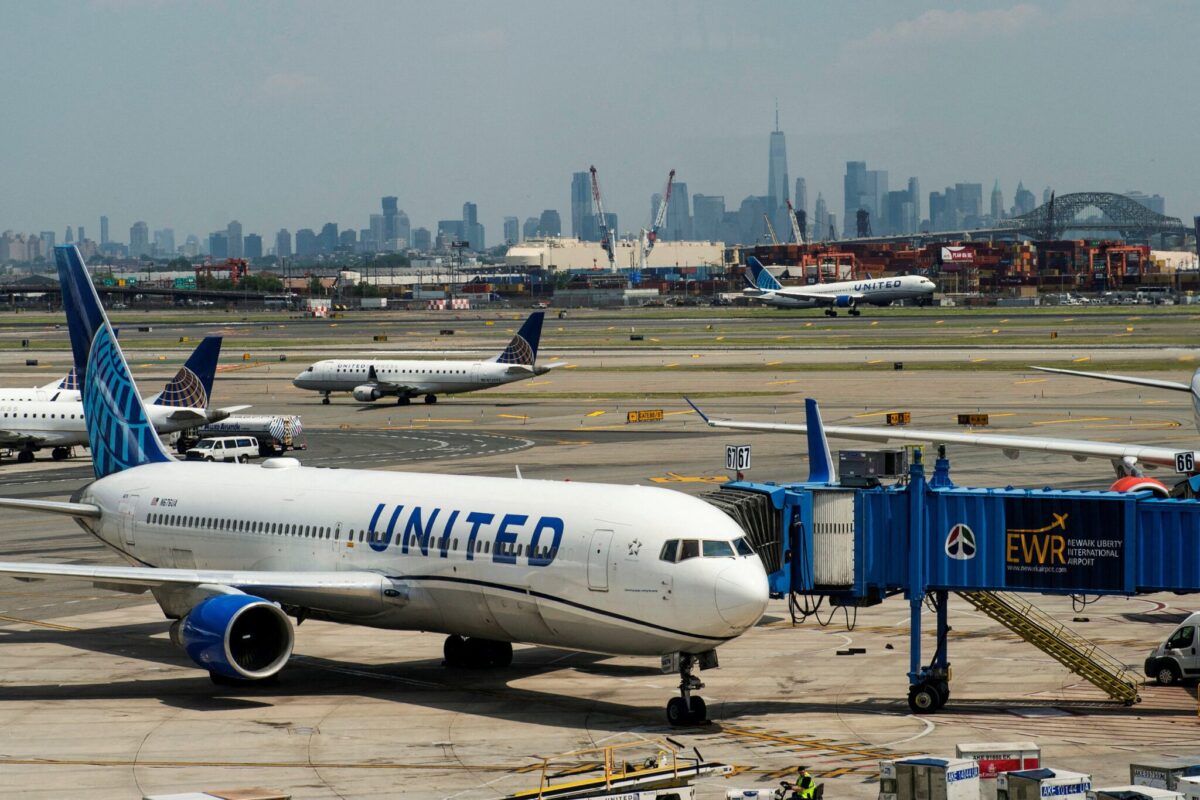Skift Take
United reported a strong first quarter, even as it faces an FAA safety review, Boeing delivery delays and rising tensions in the Middle East.
From Boeing delivery delays and increased Federal Aviation Administration oversight to escalations in the Middle East, it would seem like United Airlines might be in hot water.
But United executives don’t seem worried. The carrier had a strong first quarter — it reported a pre-tax loss of $164 million but that was primarily due to the 737 Max 9 grounding.
“Without the grounding of the Max 9, we clearly would have produced a profit in the quarter,” said Andrew Nocella, United’s chief commercial officer, during a call with analysts on Wednesday.
The carrier saw corporate travel bounce back with a 14% increase during the first quarter and revenues from United MileagePlus were up 15%. Nocella said United also saw a rebound in London, where revenues for Polaris, its business class product, were up 8%, despite 11% less capacity to the city.
And United’s strategy to woo premium and budget travelers seems to be working: The airline reported a 14% increase in premium revenues and basic economy sales were up 35% in the first quarter.
“Basic has clearly changed our competitive stance versus the ULCCs,” Nocella said.
Wall Street analysts expected a poorer first-quarter performance as the carrier was hampered by aircraft delivery delays and a string of safety incidents that prompted more FAA oversight.
“This is the airline’s first time generating an adjusted operating profit in the March quarter since 2019,” wrote TD Cowen analyst Helane Becker in a note to investors Tuesday night. “The fact that the MAX9 grounding caused a $200 MM headwind makes it even more impressive.”
United shares rose by as much as 15% following the release of its first-quarter earnings.
Are Ultra-Low-Cost Carriers Out? United’s CEO Seems to Think So.
United CEO Scott Kirby has been outspoken on the viability of ultra-low-cost carriers like Spirit and Frontier Airlines. Previously, Kirby said he expected the industry to “see a shakeout” as ultra-low-cost carriers grappled with higher operating costs and declining revenues.
This time, Kirby said the “industry has structurally changed,” with United and “at least one other” carrier having a “better proposition for customers.”
Kirby said United had a unique advantage with its products, service and international network. The United CEO added that the carrier has been able to sell basic economy tickets in a way that’s profitable and competitive with the ultra-low-cost carriers.
“We have a better product, we have a better network, we have a better loyalty program and they choose to fly us and that makes it unique,” Kirby said.
Part of United’s ambitious expansion strategy is to eat into the market share of ultra-low-cost carriers. To do so, United has been expanding its number of basic economy seats and Nocella has previously said the carrier plans to add more of the seating as it receives its larger aircraft deliveries.
Kirby said he believed United and a couple other airlines would be able to maintain their post-pandemic growth long-term.
“This is the new normal,” Kirby said.
FAA’s Safety Review Will Have Minimal Impact on Growth, Execs Say
United experienced a spate of safety and maintenance-related incidents that prompted the FAA to step up its oversight of the carrier. The FAA previously said “future projects” might be delayed based on the findings from the agency’s review.
Kirby reiterated on the call that safety was a priority for United. Executives didn’t offer much detail on what the FAA probe looks like, but said they didn’t expect it to have a negative impact on United’s bottom line.
Brett Hart, United’s president, said the carrier expected some aircraft deliveries in the second quarter to be delayed due to the FAA safety review.
“We expect this to have a minimal impact to our 2024 capacity plans,” Hart said. “I am confident that we will be able to successfully look back on this review process, resulting in an even better airline for our customers, employees and shareholders.”
Kirby said the FAA review currently prevents United from putting new aircraft into service. United recently had to pause the launch of its flights from Newark to Faro, Portugal and Tokyo to Cebu, Philippines because of the review.
The United CEO didn’t offer a timeline as to when the safety review would conclude.
“The way we would think of this is about going through a process to make it better using this as an opportunity to create a new higher standard, and it will conclude when it concludes,” Kirby said. “We’re not going to predict the time.”
The Daily Newsletter
Our daily coverage of the global travel industry. Written by editors and analysts from across Skift’s brands.
Have a confidential tip for Skift? Get in touch
Tags: business class, corporate travel, delta air lines, domestic travel, faa, frontier airlines, international travel, Scott Kirby, spirit airlines, united airlines
